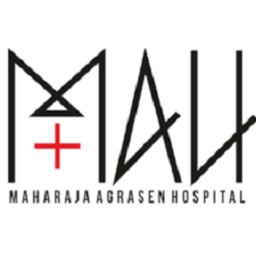Medical Superintendent
Year KA, IN, India
Job Description
Job Summary:
The Medical Superintendent is the senior-most clinical-administrator in the hospital responsible for overseeing the entire medical and clinical operations, ensuring high quality patient care, regulatory compliance, efficient functioning of departments, and aligning clinical services with the hospital's mission and strategic objectives.
Key Responsibilities:
Clinical & Medical Operations:
Provide leadership and oversight of all clinical departments (OPD, IPD, Emergency, ICU, OT, diagnostics) to ensure efficient, safe and patient-centric care. Coordinate with department heads and senior clinicians to establish and monitor medical protocols, standard operating procedures (SOPs), treatment guidelines, and ensure adherence to them. Oversee patient safety initiatives, infection control, mortality & morbidity reviews, clinical audits and quality assurance programmes. Ensure smooth patient flow across wards, OPD, and other units, and manage critical care, referrals, and escalation of complex cases beyond hospital capacity.
Administrative & Strategic:
Lead strategic planning for the hospital's medical services: including capital equipment, manpower planning, service expansion, infrastructure improvement, technology adoption (HIS/EMR) and operational efficiency. Oversee human resource matters pertaining to clinical staff: recruitment, credentialing, duty rosters, performance evaluation, continuous medical education (CME), training and mentoring. Manage budgets for medical departments, resource allocation (manpower, consumables, equipment), cost control and financial oversight of clinical operations. Ensure hospital complies with regulatory & accreditation standards (e.g., National Accreditation Board for Hospitals & Healthcare Providers - NABH, other state/national healthcare regulations) and manage liaison with government health departments, insurance bodies, external stakeholders.
Quality, Compliance & Governance:
Ensure documentation and record-keeping meet regulatory, medico-legal, audit and accreditation requirements; oversee medical records, medico-legal cases and hospital licensing. Investigate and respond to patient complaints, incidents, medico-legal issues and clinical adverse events; develop corrective action plans. Promote a culture of continuous improvement, root-cause analysis, peer review, academic activities, research and evidence-based medical practice within the hospital.
Stakeholder & External Relations:
Serve as the primary clinical liaison between management and clinicians; represent the hospital in external forums, health policy dialogues, community health initiatives and service tie-ups. Engage with hospital management, board, department heads and other administrative units to align clinical operations with strategic goals.
Qualifications & Experience:
MBBS from a recognized university; MD/MS (or equivalent specialist degree) preferred. Master's in Hospital Administration (MHA) / MBA (Healthcare) / equivalent management qualification is desirable. Significant clinical practice experience (usually 8-15 years or more) and proven administrative/leadership experience in hospital settings (preferably in multi-specialty/NABH-accredited hospitals). Valid registration with the appropriate State or National Medical Council. Strong leadership, communication, strategic thinking, financial acumen, and team-management skills.
Key Competencies and Skills:
Ability to lead, motivate and manage large teams of clinical and non-clinical staff. Excellent understanding of hospital operations, workflows, healthcare regulations, accreditation norms and quality standards. Strong analytical skills, data-driven decision making, problem solving, crisis management and change leadership. Effective interpersonal and diplomatic skills; ability to liaison with clinicians, administrative staff, government agencies and external partners. Familiarity with hospital information systems (HIS), electronic medical records (EMR), and healthcare IT workflows.
Working Environment & Conditions:
Hospital setting (multi-specialty, tertiary or super-specialty) in Karnataka; may involve on-call duties, late hours and emergency coordination. Requires coordination across departments, crisis situations (ICU, emergencies), regulatory audits and compliance loads. Will typically involve travel for meetings with regulatory bodies, external agencies, and for strategic initiatives.
Reporting & Relationships:
Reports to: Hospital Governing Board / CEO / COO . Works closely with: Heads of clinical departments, nursing leadership, quality & patient safety teams, HR, finance, operations, and external stakeholders.
Job Type: Full-time
Work Location: In person
Beware of fraud agents! do not pay money to get a job
MNCJobsIndia.com will not be responsible for any payment made to a third-party. All Terms of Use are applicable.
Job Detail
-
Job IdJD4582508
-
IndustryNot mentioned
-
Total Positions1
-
Job Type:Full Time
-
Salary:Not mentioned
-
Employment StatusPermanent
-
Job LocationKA, IN, India
-
EducationNot mentioned
-
ExperienceYear
